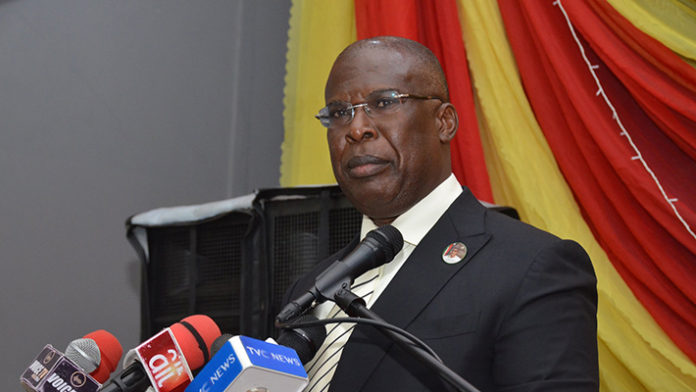The minister announced that the nation’s four refineries we’re being rehabilitated.
Nigeria is repositioning it’s oil and gas sector in a bid to leverage the opportunities provided by the African Continental Free Trade Area Agreement (AfCFTA) to become the main petroleum products refining hub for the continent.
Junior petroleum resources minister Timipre Sylva made the ambitious disclosure at the AfCFTA Oil and Gas Virtual Workshop, organised in collaboration with the ministry of Industry, Trade and Investment.
Represented at the event by Bitrus Nabasu, permanent secretary in the ministry, Mr. Sylva said Nigeria had ratified the AfCFTA, which would begin implementation in January 2021.
The minister said the AfCFTA aims to redefine trade relations within African states and proposes the creation of a central market for goods and services, enabling free movement of people and investments across Africa’s 54 countries.
”Nigeria is willing to leverage on AfCFTA to reposition its oil and gas sector for its next phase of growth. This is in line with the achievement of the vision of our national petroleum policy and national gas policy,” the minister said.
Mr. Sylva said that the government had begun rehabilitating the country’s four refineries, using a public-private partnership strategy, adding that the refineries would have a 90 per cent combined production capacity by 2023.
He said the Dangote Refinery, Lagos, and the Waltersmith Modular Refinery, Imo, as well as others coming on stream in the next few years, would transform Nigeria from a net importer to a net exporter of petroleum products.
The minister also said that when the Petroleum Industry Bill was passed it would provide the fiscal framework for attracting more investments into the sector, adding that the government was also committed to deepening gas utilisation as seen in its National Gas Expansion Programme and the autogas scheme.
Also speaking, Adeniyi Adebayo, Minister of Industry ,Trade and Investment, said the oil and gas sector was an important component of Nigeria’s economy, hence the need to position the industry to reap the benefits of AfCFTA.
Mr. Adebayo said: ”If Nigeria is to benefit from AfCFTA, it needs to re-strategise all sectors of the economy, particularly oil and gas.
“We must explore any available opportunity to make Nigeria a refining hub”, he said.
He admitted that AfCFTA’s implementation would come with challenges, and that all hands must be put on deck to overcome the challenges for the benefit of Nigeria and the African continent.
On his part, Clement Isong, a chief executive of the Major Oil Marketers Association of Nigeria (MOMAN), said the private sector could play a vital role in transforming Nigeria into a refining hub.
Mr. Isong said this would save the federal government the huge expenditure currently incurred on subsidising petroleum products and administrative costs associated with superintending over price control in the industry.
He noted that it would also create employment for millions of Nigerian youths and address the long-term degradation of the capacity, infrastructure and standards in the downstream petroleum industry, while building a sustainable industry.
“The private sector also has a role to develop an industry that has capacity to attract Local and Foreign Direct Investments into Nigeria, through the establishment of ancillary and derivate industries and through equity participation.
”To achieve these critical objectives, the right environment needs to be established; an environment that supports a market-based philosophy based on the sustainability of the petroleum industry,” Mr. Isong said.





